The Best Web3 Wallet to Use in 2023
Introduction
In an era when cryptocurrency and digital assets usage is becoming rampant, where lots of cryptocurrency centralized exchanges are no longer as trustworthy as they used to be in securing and storing user’s digital assets, the most peculiar case being that of the now crashed FTX Exchange, it is very important for users and owners of digital assets to start looking for secure and trustworthy ways of keeping and transacting their personal assets, while also in full control of these assets.
The Solution? Web3 wallets or decentralized wallets as we like to call them are therefore the most reliable way to handle digital assets. This is mainly because wallet owners are able to completely control their assets without third-party tampering. It also means that your assets are less susceptible to hacker attacks, as long as you are able to follow the proper security measures
When we talk Web3, what should come to mind, is decentralization and in-dependency, this is fast becoming the new normal for the internet now. Therefore, Web3 wallets can be called decentralized wallets, which are 100% owned and controlled by the wallet users and it is a safer wallet to store your digital assets such as Cryptocurrencies, NFTs, etc.
Web3 wallets are wallets that also enable you to store, send and receive cryptocurrency as well as interact with decentralized applications (DApps) built on the blockchain.
The best web3 wallet for you will depend on what you want to do, how experienced you are, and how much security you would like. For those who are new to cryptocurrency, a user-friendly and easy-to-use wallet such as MyEtherWallet or MetaMask might be a good choice.
But if you’re looking for more advanced features such as integration with hardware wallets, then sit tight and stay glued to this article as we will be giving you some of the best web3 wallets you can use that have some of these mentioned features. We will also be giving you some of the best web3 wallets to use when it comes to maximum security.
Now in this article, we’ll be looking deeply at the 12 best web3 wallets to use, their pros and cons, and what makes them unique.
What are Web3 Wallets?
Before we delve deep into the topic, let us understand what web3 wallets are. Web3 wallets are decentralized digital wallets that enable users to store, manage, send, and receive cryptocurrencies and tokens on the blockchain. Web3 Wallets are very essential for using decentralized applications (dApps) that run on the Ethereum network and other blockchain networks.
They provide users with a private key or a passphrase, typically stored as an encrypted file, which allows them to run transactions, and view and edit settings securely.
These wallets also frequently feature built-in interfaces for users to interact directly with dApps and other users on the Ethereum network without downloading a separate client.
Why Web3 Wallets Are Important
With the new era of the internet, web3 wallets are important because they allow users to manage and take ownership of their assets. If you want to store, buy, and exchange cryptocurrencies, you’ll need a wallet.
Web3 wallets are important because they allow storing and transacting cryptocurrency, sending and receiving cryptocurrency tokens, accessing smart contracts, and interacting with different exchanges.
To get the best web3 wallet for your use, you’ll need to consider different factors. From security to the User Interface (UI), and their costs to the supported cryptocurrencies, these factors need to be assessed by anyone wanting to dive into the new internet which is blockchain internet.
See also: Best Polkadot Wallets to Use in 2024
List of the 12 Best Web3 Wallet
- Meta Mask
- My Etherwallet
- Coinbase Wallet
- Trust Wallet
- Exodus
- Phantom
- Trezor
- OKX Wallet
- Glow Wallet
A Brief Review Of The Best Web3 Wallets On The Market
Web3 wallets are becoming increasingly popular as people all over the world seek secure ways to store and manage their cryptocurrency.
There are numerous web3 wallets on the market, each with its own set of benefits and drawbacks. But in this article, we will look at some of the best web3 wallets and give a brief overview of each.
MetaMask Wallet
Undoubtedly, MetaMask currently reigns as the most widely used wallet in the realm of Web3. With approximately 21 million active users per month, its user-friendly interface empowers individuals to engage with the blockchain while ensuring account security through a seed phrase backup. MetaMask enables users to directly purchase ERC-20 tokens within the application itself, providing control over private keys and operating in a non-custodial manner.
The wallet is also open-source, supporting trading on various custom chains such as Binance Smart Chain and layer 2 solutions like Polygon. MetaMask empowers its users by granting them greater control over their public and private keys. Furthermore, its extensive development community and soaring popularity allow seamless connectivity to the majority of decentralized applications available today.
As MetaMask operates as an online wallet, it entails a higher risk of being compromised compared to cold wallets due to its online functionality. While MetaMask itself does not track user information, the browser employed could potentially collect data regarding one’s interaction with the MetaMask extension, thereby compromising privacy. It’s worth noting that MetaMask exclusively supports Ethereum and other ETH-based tokens, limiting its compatibility with other blockchain ecosystems.
It also supports multiple tokens such as USD Coin (USDC) or DAI (DAI). Meta Mask is a great choice for those who want to have complete control over their funds and it also includes a wide range of features like two-factor authentication, multi-sig wallet support, and more.
MyEtherWallet:

MyEtherWallet provides a number of features, including secure storage, simple transactions, and access to blockchain-based decentralized applications (dApps). It also supports a wide range of languages and currencies, allowing it to be used by people all over the world.
MyEtherWallet (MEW) stands as a leading Ethereum wallet in the market, offering users the ability to securely store Ether (ETH), ERC-20 tokens, and non-fungible tokens (NFTs) across multiple platforms. MEW goes beyond mere storage, allowing users to engage in various cryptocurrency activities such as buying, selling, swapping, and exchanging within the wallet’s intuitive interface.
As an open-source wallet, MEW extends its functionality by enabling users to interact with smart contracts and decentralized applications (DApps), providing unhindered access to the vast Ethereum ecosystem. With MEW, individuals can fully immerse themselves in the dynamic world of Ethereum, capitalizing on its capabilities and exploring the innovative possibilities brought forth by DApps and smart contracts.
Users based in Europe can also sell cryptocurrency for Euros and Swiss Francs using MEW.
Coinbase Wallet:

Coinbase Wallet is a free and secure mobile cryptocurrency wallet that allows users to store, send, and receive a number of different cryptocurrencies including Bitcoin (BTC), Ethereum (ETH), Bitcoin Cash (BCH), and others.
Coinbase Wallet allows you to securely store your funds, manage your assets, track price movements, and receive cryptocurrency payments from anywhere in the world. Coinbase Wallet also provides users with secure storage options, such as a 12-word recovery phrase.
Although, Coinbase is a cryptocurrency exchange platform that helps users to securely buy, sell, trade, store, and stake crypto. They also claim to be the only publicly traded crypto exchange in the U.S. The platform takes it a step further by providing a mobile app for users that offers a wide range of making web3 exploration safer and more secure for everyone.
TrustWallet:

TrustWallet uses state-of-the-art encryption and is one of the web3 wallets with a recovery seed phrase feature to keep users’ funds safe and secure.
It supports a wide range of cryptocurrencies, like Litecoin, Bitcoin Cash, Ripple, and Stellar Lumens.
It also keeps all identities of users all over the world anonymous, providing them with an extra layer of security.
Another great advantage of trustwallet is the ability to integrate it into decentralized exchanges just with a click of a button.
See also: Trust Wallet Review: Details, Pros & Cons 2023
Exodus:
Exodus Wallet supports a wide variety of altcoins, including Bitcoin. The wallet can be used to exchange cryptocurrency without requiring any registration. However, it is essential to note that Exodus employs Simplified Payment Verification as a light wallet.
This implies that it does not download the entire blockchains but uses multiple servers to trace wallet balances. There are more necessary details relating to the Exodus wallet and how you can exchange cryptocurrencies.
Though there was some news spreading around the internet that exodus wallet has been hacked, the company came out to clear the air about the news. Exodus wallet hasn’t been hacked, it is 100% safe because its records are stored on the blockchain, not their servers.
Phantom:

Phantom Wallet is another web3 wallet phantom leading the charge for better crypto storage.
One major feature is the unique design of the UX interface on both the app and the web extension which many users are talking about.
Among the existing Solana wallets within its ecosystem, Phantom stands out as the premier choice. This cutting-edge wallet offers a comprehensive suite of features, allowing users to effortlessly manage cryptocurrencies and non-fungible tokens (NFTs), stake assets, swap tokens, and maintain full control of their private keys. Its lightweight and non-custodial nature further enhances its appeal, while its user-friendly interface makes it accessible across various browsers, catering to beginners and experienced users alike.
Phantom’s commitment to innovation extends beyond the Solana ecosystem, as it is currently in the development phase of an Ethereum wallet with similar functionality. Similar to Metamask, Phantom seamlessly integrates with Ledger hardware wallets, providing an additional layer of security for those who possess a hardware wallet.
In contrast to other wallets we’ve discussed, Phantom distinguishes itself by utilizing SOL, the native currency of the Solana blockchain, for transaction costs and gas fees instead of Ethereum. This approach results in significantly lower fees due to Solana’s high transaction throughput and scalability. While Phantom primarily focuses on the Solana ecosystem, it remains a relatively new wallet and will undergo further testing to solidify its position among its competitors.
It is available on iOS, Android, Chrome, Brave, and more. The wallet also offers additional features such as decentralized exchanges and other dApp integrations.
Read Also: How To Make Money With Web3 in 2023
Trezor:

It dives into the market with the idea that information stored online is hackable and vulnerable to attacks. So, Trezor Labs put into the market a product that is able to store data on users’ portfolios offline.
The Trezor web3 wallet is an open-source wallet, meaning anyone can view and audit the code to ensure it’s secure and reliable. It basically provides users with a reliable, consistent, and trustworthy way to store coins offline.
Renowned for pioneering the development of the first hardware wallet for cryptocurrencies, this wallet utilizes an LED display and a PIN as a user-friendly interface to access the wallet securely. To further enhance security, the device incorporates 2-factor authentication, prompting users to verify purchases. With a commitment to inclusivity, the wallet strives to support every official cryptocurrency and has successfully implemented 1600 cryptocurrencies to date.
While the secure wallet offers robust security features, it may not boast the same level of beginner-friendliness as some other hardware wallets. The user experience, particularly for users purchasing their first hardware wallet, may be more seamless with Ledger, giving it an edge in terms of the user interface. Additionally, it’s worth noting that the Trezor Model T can be relatively expensive, which could be a potential drawback.
OKX Wallet:
OKX Wallet stands as a prominent self-custody wallet that empowers users to securely take charge of their cryptocurrencies, non-fungible tokens (NFTs), and digital assets, consolidating them within a single platform. With OKX Wallet, individuals gain the ability to buy, trade, earn, and manage their digital assets across more than 50 blockchains, including Bitcoin, Ethereum, OKT Chain, Solana, BSC, and Aptos. The wallet’s extensive language support encompasses over a dozen languages, ensuring accessibility and inclusivity for users across diverse regions.
Glow Wallet:
When it comes to simplicity, Glow Wallet emerges as one of the simplest and most user-friendly mobile wallets available. With its intuitive interface, users can seamlessly send, receive, and swap digital assets directly on the Solana blockchain. The wallet provides transparent transaction details, allowing users to clearly understand their activities.
Similar to the Rainbow Wallet, Glow Wallet offers convenient exploration and browsing of non-fungible tokens (NFTs). An exciting forthcoming feature is Solana Pay, which enables users to make in-person payments at retailers, showcasing the wallet’s commitment to innovation and user-centric experiences. Overall, Glow Wallet aims to simplify the user experience while ensuring security and delight.
At present, Glow Wallet exclusively operates as a mobile wallet and does not offer web or desktop versions. It is relatively new in the wallet space compared to established market players. However, its dedication to ongoing innovation positions it for great potential and success in the future.
Rainbow Wallet:
Rainbow presents itself as a non-custodial wallet exclusively designed for Ethereum. Much like Argent, Rainbow offers support for Ethereum network decentralized applications (dApps), enabling users to execute swaps directly within the application. By not holding assets on behalf of its users,
Rainbow ensures a non-custodial approach, granting individuals complete control over their digital assets. One noteworthy feature of Rainbow is its ability to showcase NFTs and other digital assets within the application. When it comes to Ethereum wallets, Rainbow stands out with its sleek user interface and exceptional user experience.
It is essential to note that Rainbow Wallet falls under the category of hot wallets, which inherently carries a higher risk of potential hacking compared to cold wallets. Therefore, it is crucial to prioritize regular backups of the wallet data file and seed phrases to safeguard your assets.
Ledger Nano X:
Ledger Nano X stands as one of the most popular hardware wallets available on the market, alongside Trezor. It is particularly well-suited when paired with the smartphone app called Ledger Live. This app allows users to conveniently view their balance, whether or not the device is connected. Notably, the Nano X introduces Bluetooth connectivity, eliminating the need for a USB cable to confirm transactions, thus simplifying the user experience even further.
With its sleek and modern design, this hardware wallet supports a vast array of over 1,800 tokens, including Ethereum and ERC-20 tokens. Its extensive token compatibility, coupled with robust security measures, positions the Ledger Nano X as a top choice. However, it is important to acknowledge that the wallet’s relatively higher price compared to other wallets could be a potential downside.
Zerion Wallet:
Zerion emerges as an intuitive mobile-first web3 social wallet and investment tool that empowers individuals to manage their DeFi and NFT portfolios. What sets Zerion apart in the ecosystem is its ability to seamlessly connect with non-Zerion wallets, including Ledger hardware wallets, enabling users to efficiently manage their portfolios. This feature positions Zerion as a must-have web3 wallet.
One of Zerion’s notable strengths is its built-in trading and bridging aggregator, which spans across major blockchains. This powerful tool allows users to discover the best deals across multiple devices, including web, mobile, and iPad applications. Moreover, Zerion’s social features enhance the user experience by enabling users to follow other wallets, receive push notifications for NFT drops, and track their favorite assets.
Zerion is committed to supporting other builders in the ecosystem, sharing many of its tools. The Zerion Websocket API, built on Alchemy, empowers developers to seamlessly integrate the entire DeFi landscape into their applications without the need for running their own node infrastructure. This API is utilized by wallets like Rainbow Wallet. Additionally, Zerion’s DeFi SDK, a collection of open-source smart contracts, simplifies trading across networks, asset queries, and interactions with major DeFi protocols.
Impressively, Zerion is doing well with an average daily trade volume of $5 million and a median trade size of $1,000.
Types of Web3 Wallets, Their Pros and Cons
Web3 wallets are software-based wallets used to store and transact with crypto assets on the Ethereum blockchain. They allow users to interact with decentralized applications at the same time as managing their crypto assets. Furthermore, looking at the list of some of the best web3 wallets we have mentioned above, you will notice that we have varying types of web3 wallets. Below are the types of web3 wallets we have, their advantages, and their drawbacks.
Mobile Wallets:
Advantages: Mobile wallets are extremely convenient and easy to use. They are also often very secure, thanks to additional layers of authentication and security measures. They are very private, as they don’t require any kind of personal information to use.
Drawbacks: Mobile wallets can be vulnerable to malware and hacking, as they aren’t protected by the same security protocols as web wallets. Additionally, they may be subject to delays in transaction confirmation due to network congestion.
Software Wallets:
Advantages: Software wallets are one of the most secure types of web3 wallets. They are usually self-hosted, meaning that private keys are stored on the user’s computer, making them much less vulnerable to outside attacks. They also have an extra layer of security thanks to encryption protocols which makes them more difficult for hackers to access.
Drawbacks: Software wallets are not as user-friendly as mobile wallets and require more technical knowledge to set up and manage properly. Since users do not have control over their own servers, it can be difficult for them to access funds in the event that their computer crashes or is damaged.
Hardware Wallets:
Advantages: Hardware wallets are arguably the most secure web3 wallet available today. They store private keys on a physical device which must be connected to a computer or mobile device in order to access funds or send transactions. They are also extremely secure, making them the best choice for those looking for a highly secure option for managing their crypto assets.
Drawbacks: Hardware wallets can be costly and require additional setup steps before use. They also require a physical presence to use which can be inconvenient sometimes.
Read Also: Top 3 Web3 Wallet Development Company in 2023
Security Considerations: Steps to make sure your web3 wallet is secure
- Use a Trusted Wallet service
- Do not share your credentials
- Enable Additional Security Measures
- Use a Strong Password/Passphrase
- Stay Informed
- Be careful when using public wifi and charging stations
- Use Hardware wallets If possible
See Also: Reviewed: The Best Web3 Stocks to Buy in 2023
Wrapping Up
When selecting the best web3 wallet for your needs, it is essential to consider your own requirements, research all available options, look at user reviews and compare features before making a decision.
You can do your research by checking out some of our reviews on web3 wallets here on Dipprofit.com to see and get updated with the latest information in the market. Also, join communities online and forums to interact with other users so you can be able to make healthy decisions
You should also pay attention to the security features of the wallet you choose – it is important to keep your funds safe!

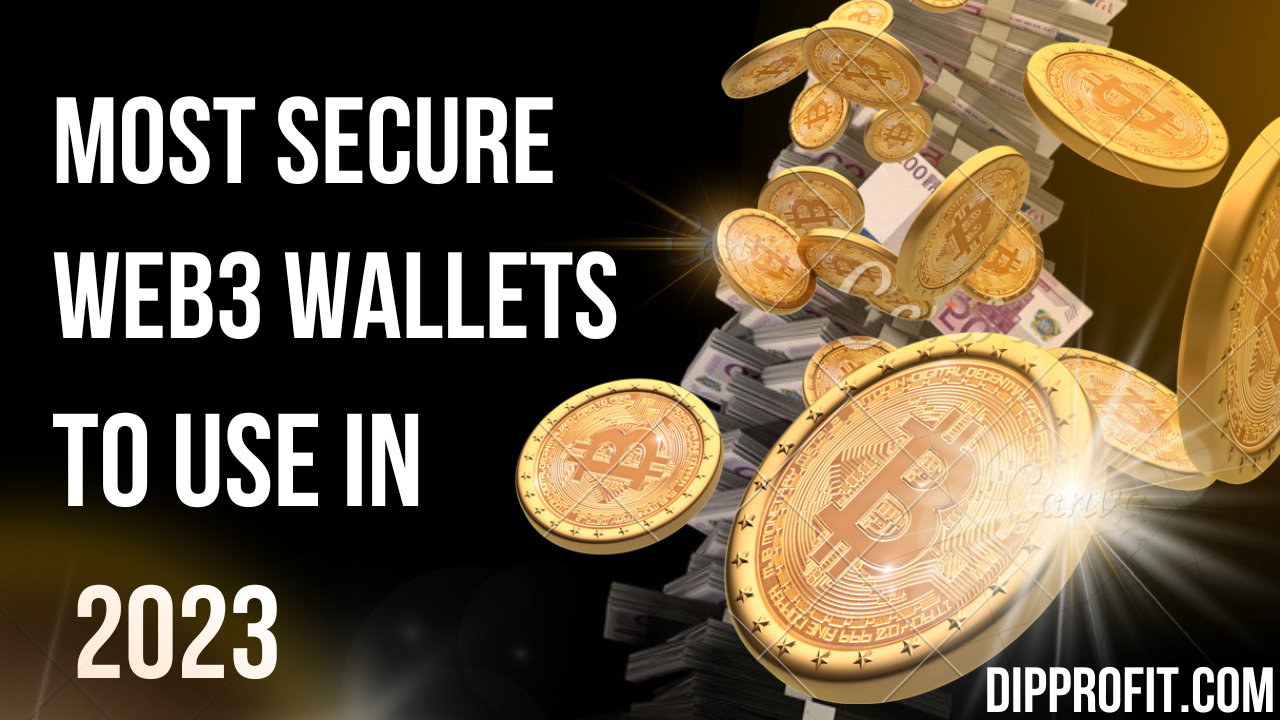

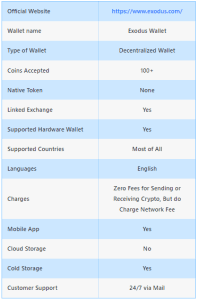
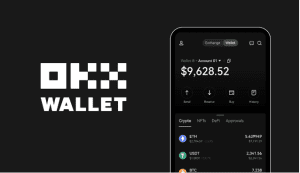
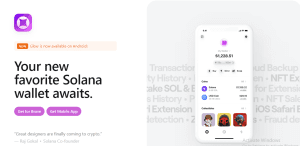

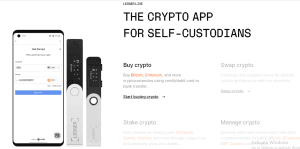
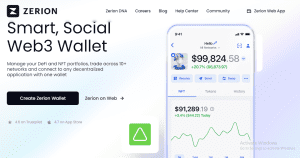

Comments 1